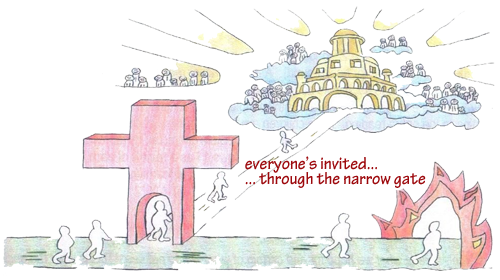KINGDOM ETIQUETTE
Sirach 3:17-18, 20, 28-29; Hebrews 12:18-19, 22-24a; Luke 14:1, 7-14
Someone asked Leonard Bernstein, the conductor of the New York Philharmonic Orchestra, to name the most difficult instrument to play. Without hesitation, he replied: “The second fiddle. I can get plenty of first violinists, but to find someone who can play the second fiddle with enthusiasm—that’s a problem. And if we have no second fiddle, we have no harmony.”
Most of us want to be in the spotlight. This Sunday’s readings challenge us to be humble, and to be willing to play second fiddle.
At a Sabbath dinner, Jesus notices guests jockeying for positions of honour. He teaches them kingdom etiquette of humility; he echoes the wisdom of Sirach in the first reading: “Humble yourself the more, the greater you are, and you will find favour with God.” Humility is not self-abasement but a realistic understanding of oneself and of one’s strengths and weaknesses. It is an “interior at-homeness”, being at home with oneself!
In the second part of the gospel, Jesus shifts focus from guest etiquette to host etiquette. Through his preferred guest list, he reminds us of his preferential option for the poor. Throughout his ministry, Jesus sought the least, the lost, the forgotten. Further, he wants inclusion, not exclusion; he has opened wide the narrow door of last week to let all people in.
We live in an era which fosters self-glorification and emphasizes the self. We live in a world that judges mainly by externals: clothes, degrees, positions, designations… we believe that these determine our status.
In kingdom etiquette, status—which society confers—counts for nothing. Our status is measured not by our rank/ occupation, but by the quantum of love we offer God through service; it depends not on how others look at us, but on the care and compassion with which we look at them.
Do I jockey for position in church and in society?
Am I humble: do I acknowledge my strengths and shortcomings, and recognize others’ feats and forgive their failures? Is there place in my heart/life for the world’s “nobodies”: the least, the lost, the forgotten?
May you and I learn kingdom etiquette!



